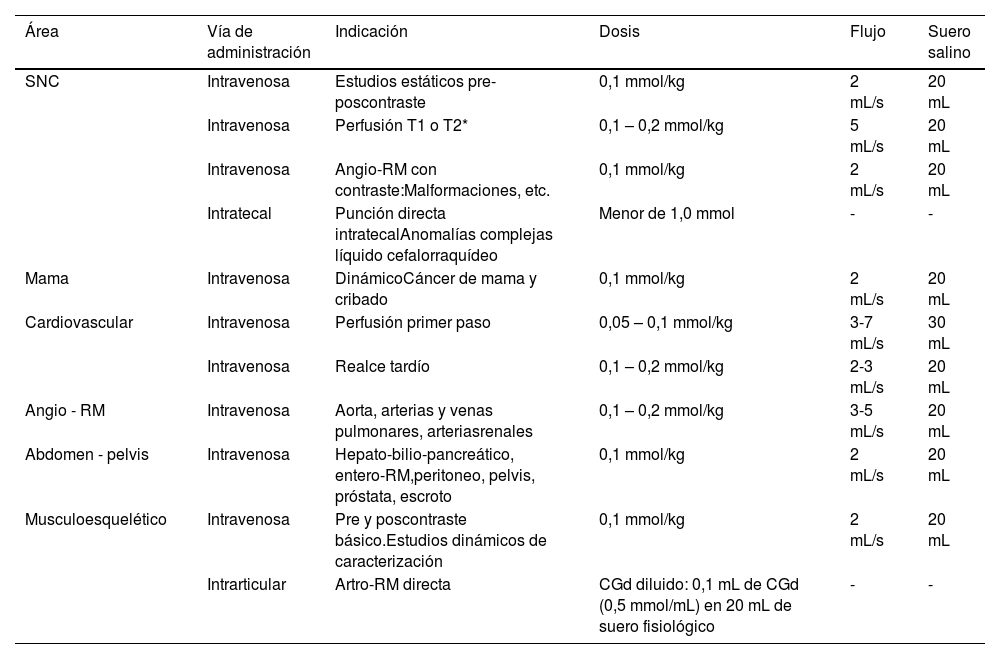
Suplemento:Actualización y buenas prácticas en los usos de los medios de contraste
More infoLos contrastes de gadolinio (CGd) de distribución extracelular se utilizan frecuentemente en resonancia magnética (RM) porque aumentan la detección de alteraciones, mejoran la caracterización tisular y permiten un diagnóstico diferencial más preciso.
Los CGd se consideran seguros, pero no están exentos de riesgo. Conocer los riesgos, saber qué actitud adoptar en diferentes situaciones (embarazo, lactancia, insuficiencia renal) y cómo reaccionar si se producen complicaciones (extravasaciones, reacciones adversas, alérgicas y anafilácticas) es imprescindible para el uso adecuado de los CGd.
Se presentan las características de la molécula de gadolinio (Gd), las diferencias en la estructura bioquímica, su biodistribución y el efecto sobre la señal de RM. Se revisan los aspectos de seguridad y las aplicaciones clínicas más frecuentes.
Extracellular gadolinium-based contrast agents (GBCA) are commonly used in magnetic resonance imaging (MRI) because they increase the detection of alterations, improve tissue characterisation and enable a more precise differential diagnosis.
GBCAs are considered to be safe but they are not risk-free. When using GBCAs, it is important to be aware of the risks and to know how to react in different situations (pregnancy, breastfeeding, kidney failure) including if complications occur (extravasations, adverse, allergic or anaphylactic reactions).
The article describes the characteristics of the gadolinium molecule, the differences in the biochemical structure of these GBCA, their biodistribution and the effect on the MRI signal. It also reviews s
afety aspects and the most common clinical applications.




















